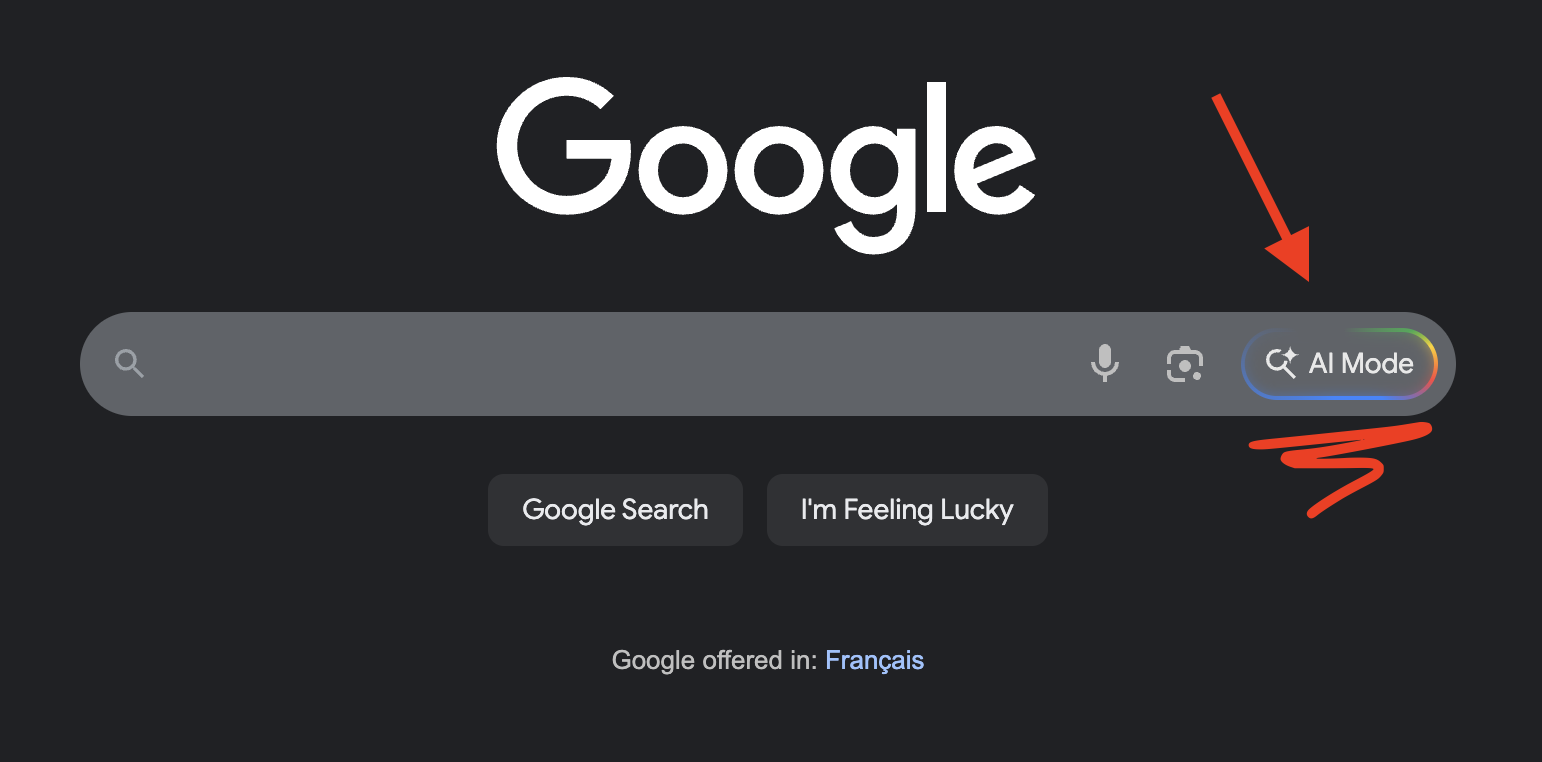
I expected Google to dominate this comparison....
After all, Google has decades of search expertise, unlimited resources, and now their powerful Gemini 2.5 model powering AI search. How could a startup like Perplexity compete?
The results surprised me.
Over three weeks, I tested both platforms across dozens of queries, from simple factual searches to complex research tasks. I measured response quality, accuracy, source citations, and user experience. The data tells a clear story.
Perplexity wins decisively.
But this victory reveals something bigger than just platform preference. We're witnessing a fundamental shift in how search works, and the implications go far beyond these two tools.
Google AI Search: The Retrofit Approach
Google's AI search integrates their Gemini 2.5 model into the existing search framework. You get AI-generated summaries above traditional search results, plus the ability to ask follow-up questions.
The integration feels familiar. Google leverages its massive index and established infrastructure, delivering AI insights alongside classic blue links. For casual searches, it works well enough.
Strengths:
• Completely free and accessible
• Deep integration with Google ecosystem
• Familiar interface reduces learning curve
• Massive data advantage from years of indexing
Limitations:
• AI responses often feel shallow
• Limited conversation continuity
• No advanced organization tools
• Responses lack the depth needed for research
The platform succeeds at quick answers but struggles with complex, multi-faceted queries where context matters.
Perplexity: Built for AI-First Search
Perplexity takes a different approach entirely. Built from the ground up as an AI-native platform, it processes over 780 million monthly queries with a focus on comprehensive, well-sourced responses.
The interface resembles a conversation more than traditional search. Each query generates detailed responses with inline citations, follow-up questions, and the ability to dive deeper into any topic.
Strengths:
• Superior response depth and accuracy
• Excellent source citations and verification
• Advanced organization with Collections and Spaces
• Multi-model flexibility (GPT-4o, Claude 3.5 Sonnet, Gemini Pro)
• Conversation continuity that builds context
Limitations:
• Premium features require subscription
• Smaller overall data index than Google
• Learning curve for traditional search users
• Limited integration with other tools
Perplexity achieves a 95% accuracy rate, which is 15% higher than most traditional search engines.
Head-to-Head Comparison
Search Quality and Depth
Winner: Perplexity
Google AI provides quick summaries that scratch the surface. Perplexity delivers comprehensive analyses that actually answer the full scope of your question.
For "explain quantum computing applications in drug discovery," Google gave me three paragraphs with basic concepts. Perplexity provided a detailed breakdown covering molecular simulation, protein folding, optimization algorithms, and current pharmaceutical partnerships, all with specific citations.
Source Citations and Verification
Winner: Perplexity
This difference is stark. Google's citations often link to the same few sources or provide vague attributions. Perplexity includes inline citations throughout responses, making fact-checking effortless.
When researching climate change impacts on agriculture, Perplexity cited 12 different academic sources, government reports, and recent studies. Google cited three news articles and Wikipedia.
Research Capabilities
Winner: Perplexity
Google AI search works for individual queries but fails at sustained research. Perplexity's Collections feature lets you organize research topics, maintain context across sessions, and build comprehensive knowledge bases.
I spent two days researching AI regulation frameworks. With Google, I lost context between sessions and repeated searches. Perplexity maintained conversation history and built upon previous queries seamlessly.
User Experience and Interface
Winner: Tie
Google wins on familiarity and zero learning curve. Perplexity wins on functionality and research tools. Your preference depends on whether you prioritize comfort or capability.
Pricing and Accessibility
Winner: Google AI Search
Google's completely free approach beats Perplexity's freemium model. However, Perplexity's free tier offers substantial value, and the Pro subscription unlocks significantly more powerful capabilities.
Specialized Features
Winner: Perplexity
Collections, Spaces, conversation continuity, and multi-model selection give Perplexity clear advantages for serious research work. Google's integration with Gmail and Drive matters for ecosystem users but doesn't enhance search quality.
The Broader Implications
These results point to a seismic shift in search behavior. Gartner predicts traditional search engine volume will drop 25% by 2026 due to AI chatbots and virtual agents.
The data supports this prediction. 77% of Americans now use ChatGPT as a search engine, with 24% turning to it before Google. Users spend an average of 23 minutes per session on Perplexity compared to Google's quick-answer model.
Purpose-built AI platforms are outperforming retrofitted solutions.
Google's approach of adding AI to existing search infrastructure creates friction. Users get AI summaries followed by traditional results, forcing them to process information in two different formats. Perplexity eliminates this cognitive overhead.
The startup advantage shows clearly here. Perplexity could design everything around AI-first principles. Google must balance innovation with protecting their existing search advertising model.
Who Should Use What
Choose Google AI Search if you:
• Need quick, simple answers to factual questions
• Prefer free tools without subscription commitments
• Want seamless integration with Google Workspace
• Value familiar interfaces over advanced features
Choose Perplexity if you:
• Conduct regular research requiring depth and accuracy
• Need to organize and revisit complex topics
• Value comprehensive responses with strong citations
• Want the best available AI search technology
The Verdict
Perplexity wins this comparison decisively, but the real story is bigger than platform preference.
We're watching the emergence of AI-native tools that outperform traditional platforms enhanced with AI. This pattern will repeat across industries as specialized AI applications challenge established players.
For anyone doing serious research, analysis, or knowledge work, Perplexity offers capabilities that Google AI search simply cannot match. The depth, accuracy, and organization tools justify the learning curve and subscription cost.
Google will undoubtedly improve their AI search capabilities. But Perplexity has proven that starting fresh with AI-first design principles creates advantages that retrofitting cannot overcome.
The search wars have a new dynamic, and the specialized player is winning.


